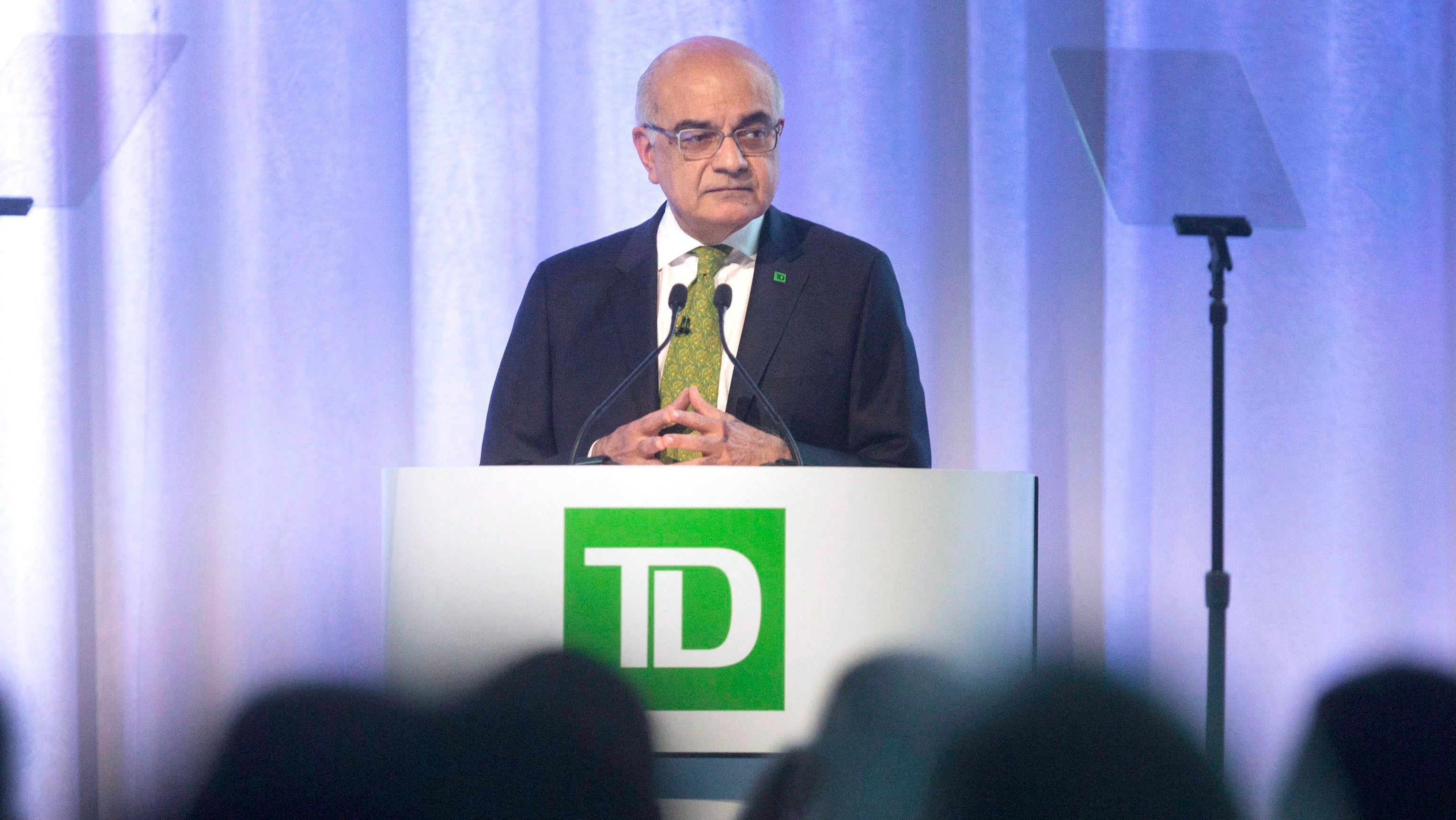Feb 28, 2022
TD's US$13.4B deal revs up Canadian banks' growth abroad
, Bloomberg News
TD's US$13.4B deal revs up Canadian banks' growth abroad
In just over two months, Canada’s banks have struck the two largest deals in their industry’s history, both reaching beyond their borders to grab more of the competitive U.S. market.
Toronto-Dominion Bank on Monday announced a US$13.4 billion takeover of First Horizon Corp. that would expand its U.S. footprint beyond the East Coast. In December, Bank of Montreal agreed to buy BNP Paribas SA’s Bank of the West unit for US$16.3 billion, giving it a presence in the U.S. West.
The opportunity is clear: Canada’s six largest banks already hold roughly 90 per cent of the deposits in a nation of 38 million people. By contrast, the 10 largest U.S. banks hold only about 55 per cent of deposits in the country, home to 330 million. Canada’s big banks have about 30 far-smaller domestic competitors, while the U.S. has around 5,000 active banks and financial institutions.
Toronto-Dominion Chief Executive Officer Bharat Masrani acknowledged as much in an interview after announcing the First Horizon deal, saying that the acquisition offers opportunities to grow far beyond any available in Canada.

“The markets in which we are operating, there’s a combined population of 123 million people -- that is three times Canada,” Masrani said, referring to Toronto-Dominion’s U.S. operations with the First Horizon deal. “That is what is attractive to us: scale, strategically aligned to what we do, and this is where we can create value.”
First Horizon, based in Memphis, Tennessee, has 412 branches and more than 1.1 million individual and business customers across 12 states. It has leading positions in Tennessee and Louisiana; a presence in Florida, the Carolinas and Virginia; and “important footholds” in Atlanta, Dallas and Houston, Toronto-Dominion said.
The deal also will give Toronto-Dominion additional capabilities in commercial banking and adds scale to its fixed-income sales and trading business.
A similar rationale was at play in Bank of Montreal’s takeover of Bank of the West. That deal would add 1.8 million customers along a retail footprint stretching from Bank of Montreal’s stronghold in the Midwestern markets of Chicago and Milwaukee all the way to the West Coast.

And another Canadian banking giant announced a deal Monday to accelerate its own expansion outside its home country. Bank of Nova Scotia agreed to pay $1.3 billion (US$1 billion) to buy Grupo Said’s remaining 16.8 per cent stake in Scotiabank Chile, giving the Canadian bank nearly 100 per cent ownership in its Chilean unit.
Chile has a population of around 19 million, and Scotiabank has said its Latin America-focused international unit provides growth opportunities in two ways. It provides access to economies that are growing more rapidly than Canada’s, and it puts the bank in markets where the population is “underbanked,” or not yet using financial services at the same rate as in more developed markets.

While it wasn’t as retail-focused and didn’t come with a price tag north of US$10 billion, Royal Bank of Canada has found success with its US$5.6 billion takeover of City National, a U.S. private bank. Royal Bank has tripled the size of that bank since acquiring it in 2015.
Toronto-Dominion is something of a poster child for Canadian banks’ growth-abroad strategy. The bank didn’t enter the U.S. retail banking market until 2004, when it purchased Banknorth Group Inc. for US$3.8 billion. Three years later, Toronto-Dominion doubled its U.S. presence with the US$8.34 billion acquisition of Commerce Bancorp Inc., adding almost 460 locations.
Now, with the First Horizon deal, which needs regulatory approval, Toronto-Dominion is poised to become the sixth-largest U.S. bank by deposits.
“Our approach has been very consistent,” said Masrani, who was head of Toronto-Dominion’s U.S. division at the time of the Commerce Bancorp deal. “Core to TD is organic growth, but we always look for opportunities to accelerate that growth, enter new markets, create a competitive advantage by having more scale and more customers.”






